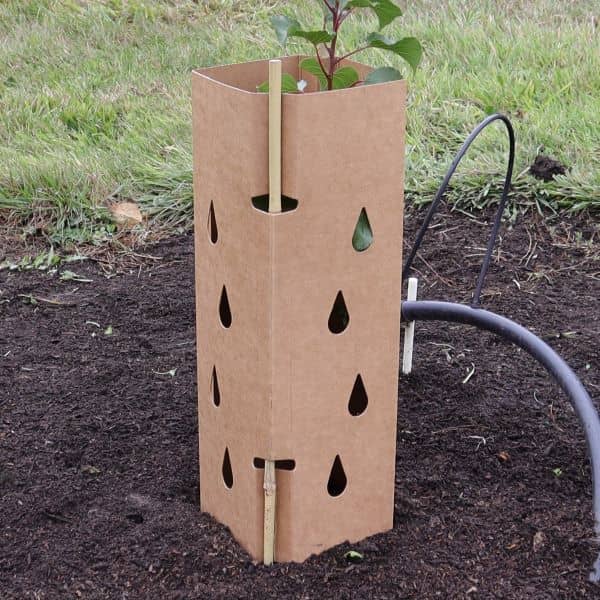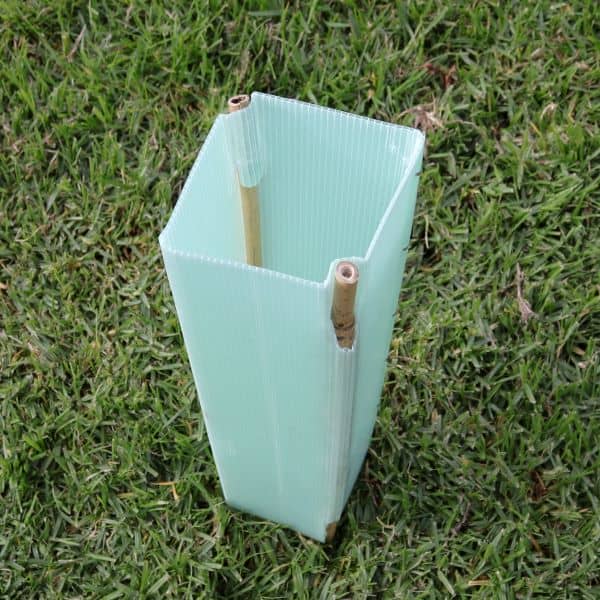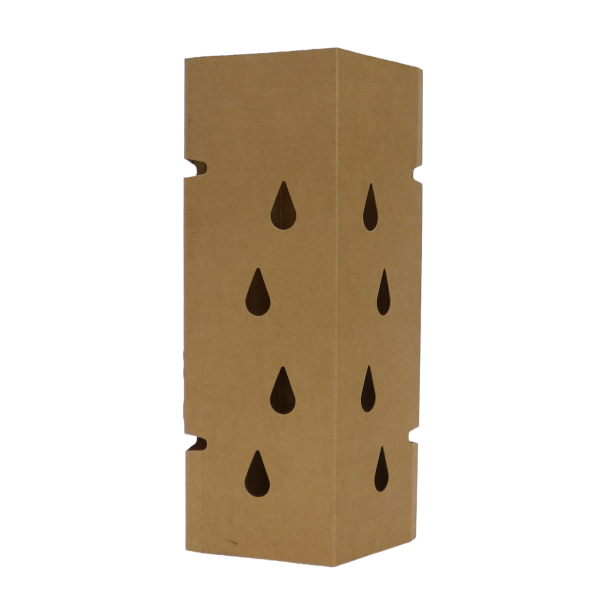Tree guards play a vital role in the protection and growth of young trees by shielding them from animals, weather, and other external threats. When choosing tree guards, one of the main decisions to make is whether to use plastic tree guards or biodegradable tree guards. Each type has its own set of benefits and drawbacks, which makes the decision dependent on your specific needs, location, and environmental concerns. Below, we explore both types to help you make an informed choice.
 Plastic Tree Guards
Plastic Tree Guards
Durability and Strength Plastic tree guards are known for their durability. Made from sturdy materials, they provide excellent protection against physical damage caused by animals, garden equipment, and harsh weather. Their solid structure ensures that they remain effective for a longer period, often lasting several years.
 Cost-Effective: One of the advantages of plastic tree guards is that they are cost-effective. Given their longevity, they are a one-time investment that provides extended protection to saplings. This makes them a popular choice for commercial operations such as orchards and large plantations, where tree guards are needed for hundreds or thousands of trees.
Cost-Effective: One of the advantages of plastic tree guards is that they are cost-effective. Given their longevity, they are a one-time investment that provides extended protection to saplings. This makes them a popular choice for commercial operations such as orchards and large plantations, where tree guards are needed for hundreds or thousands of trees.- Reusability: Plastic tree guards can be reused. Once a tree has matured and no longer requires protection, the guard can be removed, stored, and used for another tree. This reusability can reduce the overall environmental impact, provided that the plastic guards are handled responsibly.
- Environmental Concerns: Despite their practical benefits, plastic tree guards pose a significant environmental issue. If not properly maintained or recycled, they contribute to plastic waste. Additionally, the production of plastic involves the use of non-renewable resources, which have a carbon footprint. For environmentally-conscious users, this can be a major disadvantage.
Biodegradable Tree Guards
Eco-Friendly Biodegradable tree guards are made from natural materials, such as cardboard, jute, or cornstarch-based plastics, which decompose naturally over time. This makes them the ideal choice for individuals or organisations aiming to reduce their environmental footprint. Unlike plastic, biodegradable guards break down without leaving behind harmful residues, enriching the soil as they decompose.
 No Need for Removal: One of the key benefits of biodegradable tree guards is that they don’t need to be removed once the tree is mature. Since they decompose naturally, there is no risk of litter or the need for labor-intensive removal. This is particularly advantageous in large-scale reforestation projects, where accessing trees to remove guards may be difficult.
No Need for Removal: One of the key benefits of biodegradable tree guards is that they don’t need to be removed once the tree is mature. Since they decompose naturally, there is no risk of litter or the need for labor-intensive removal. This is particularly advantageous in large-scale reforestation projects, where accessing trees to remove guards may be difficult.- Limited Lifespan: The main drawback of biodegradable tree guards is their limited lifespan. While this can be beneficial in some cases, it also means that they may not provide long-term protection in areas where threats to trees last for several years. In environments with persistent animal pressure or extreme weather, biodegradable guards may need to be replaced more frequently.
- Cost Biodegradable: tree guards can sometimes be more expensive than plastic options, especially if they are made from high-quality materials. However, the extra cost is often justified by their environmental benefits. Additionally, some types of biodegradable tree guards, like those made from recycled paper or cardboard, are relatively affordable.
Which is Best?
When deciding between plastic and biodegradable tree guards, the best option depends on your specific goals and the environment in which the trees will grow.
For commercial operations focused on long-term protection with minimal maintenance, plastic tree guards may be the most practical choice due to their durability and reusability.
On the other hand, for individuals or organisations prioritising sustainability and eco-friendliness, biodegradable tree guards offer a more environmentally conscious alternative that won’t contribute to plastic waste.